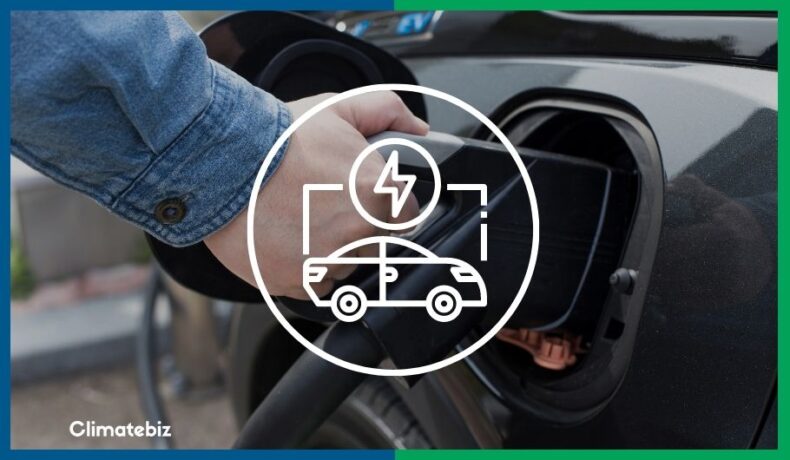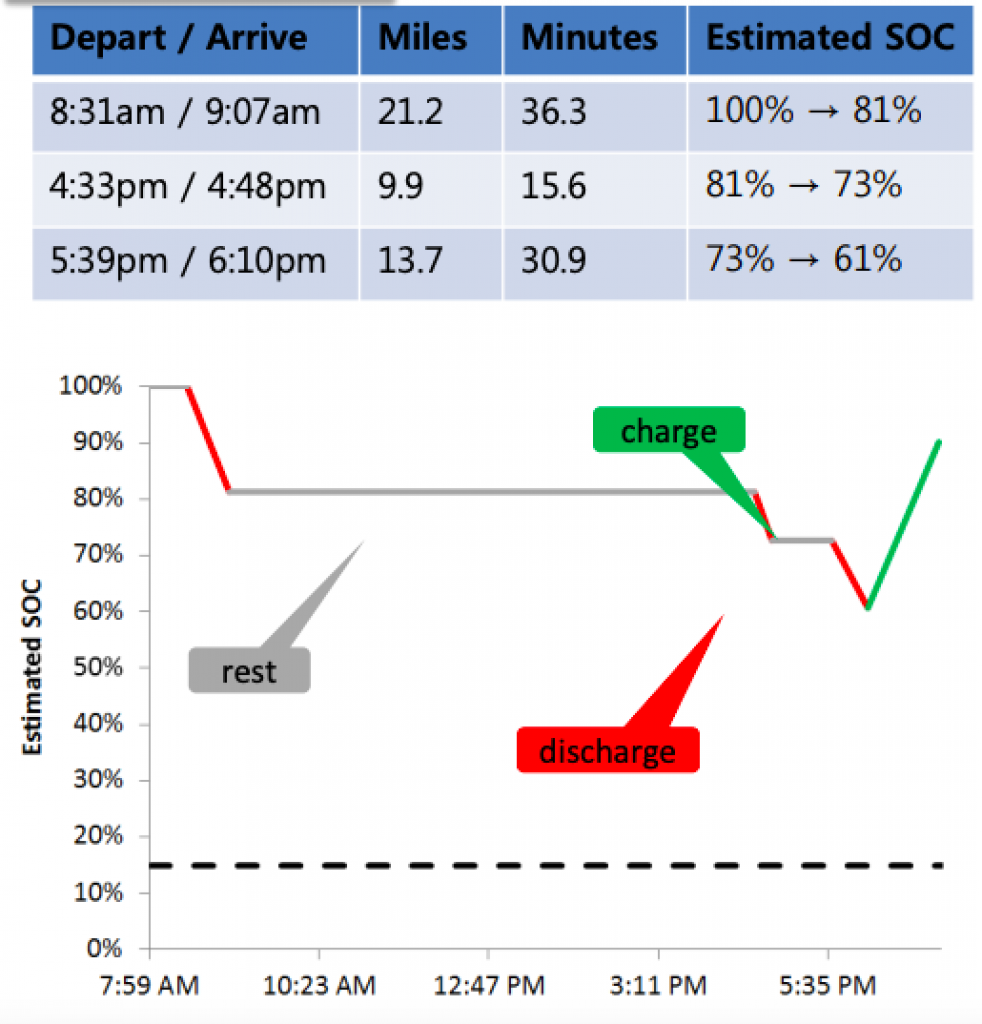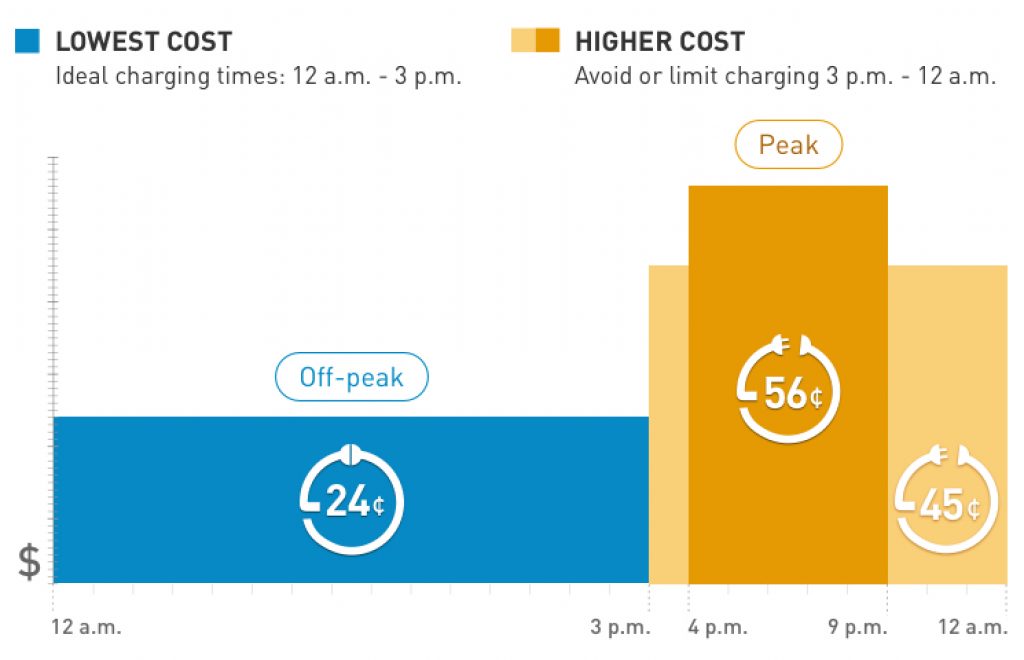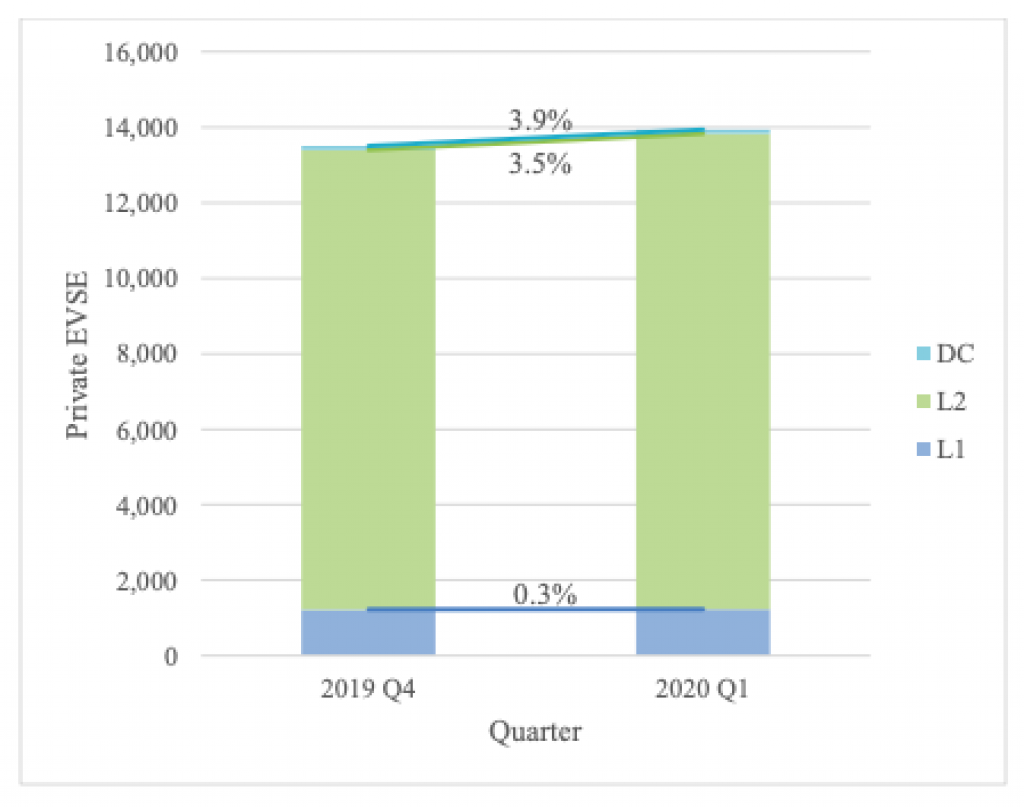How Much Voltage Is Needed To Charge A Phone

Opinions vary when talking about the all-time voltage to charge an EV.
Knowing which voltage is best to charge an EV shouldn't exist overcomplicated. However, many people still tend to over-worry about this. We retrieve it stems from the fact that almost of us perceive charging time as a disadvantage of owning an EV compared to traditional fossil fuel vehicles. This is some other discussion for another time.
For now, let'southward encompass the basics of the voltage level selection process for yous.
Showtime, we want to clarify that it is fine to charge your EV at any voltage level, namely:
- Level 1 (120 volt home outlets);
- Level 2 (208-240V outlets); or
- Level 3 (480V+ public DC Fast-Charging ports) chargers.
But, the main departure you should be enlightened of is that the college the charging voltage level you use, the quicker you can make full your EV battery State of Charge.
Now, we understand that some of you prefer to optimize and nitpick which voltage level is best for your situation. Therefore, nosotros'll share our principal considerations when choosing the all-time voltage to charge your EV.
Stick with usa, and you'll also learn:
- Why we recommend level 2 voltage chargers;
- How voltage affects the rate of charging;
- Why yous shouldn't worry too much most high voltage DC fast-chargers (DCFC) ruining your EV batteries.
Foreward
Climatebiz experts design, research, fact-check & edit all piece of work meticulously.
Affiliate Disclaimer
Climatebiz is reader-supported. We may earn an chapter commission when yous buy through links on our site.
What Voltage Should I Charge My Electric Car?
Well, it depends on what you value and how much you are willing to spend. After all, choosing the "best" electric car charging voltage is often a trade-off betwixt convenience and price.
For case, we concur with some of you that DCFCs are the most convenient chargers considering you can charge your Tesla Model 3 or Y fully in only ten to thirty minutes at that level. Withal, level iii charging stations are deficient, and they're more expensive in terms of $ per kWh and crave sophisticated infrastructures first.
Key Considerations
As we mentioned, there are iii charger levels. Selecting the one most suitable for your needs depends on:
- Your daily commute;
- Access to workplace/public charging stations;
- EV battery size; and
- Readiness of your home to arrange loftier voltage charging stations (greater than 120V)
Delight note: to assess the readiness of your house to accommodate level two charging stations, consult with an electric professional or installer in your local area to check your electric panel and organization.

Source: NREL.com
The table below summarizes your key considerations when choosing an EV charging station.
| EV Charger Type | Level 1 | Level 2 | Level 3 |
|---|---|---|---|
| Voltage | 110-120 V | 220-240 5 | 440-480 V |
| Charging Capacity | up to 5 miles per hour | up to 25 miles per hour | up to 800 miles per hr |
| Pros | Plug-and-Play Requires no upgrade on the electrical panel Information technology comes with the EV | Upward to iv times faster charging time than level one | DC Fast-charging |
| Cons | Painfully tedious charging | Requires practiced guidance Permit required Extra toll | It tin slightly stress your EV battery depending on the maximum charge rate. Expensive technology |
| Best for who | Short commuters Plug-in Hybrid owners People with access to workplace chargers People willing to have 8+ hours of charging time | People who want a faster charger People who have long commutes EVs with big battery sizes | Long drives (we recommend sticking to Level 1 or two chargers for personal use) |
Selecting The Appropriate Voltage Could exist A Goldilocks Practise
As you can run across, a 120V charging station is the easiest to install among the bunch, while a 480V DC fast-charging station withal isn't economical for home installation, merely it gives the quickest charging time.
Given the merchandise-offs of choosing chargers at the ends of the spectrum, we think that choosing the best voltage to charge an EV becomes a Goldilocks practise where the middle pick (208V-240V) is your all-time bet.
Case Study: California
While nosotros concur that having a Level i charger at home and access to public EV charging stations is enough to satisfy the basic daily charging needs of 92% of U.S. drivers, having access to level 2 chargers offers ii things:
- Less worrying about not meeting your desired State of Accuse for your adjacent trip; and
- Flexibility to owners, particularly in places with special fourth dimension-of-use (ToU) rates.
For example, California Utility PG&Due east encourages EV customers to charge their electric cars during off-summit hours between 12 a.thousand. and iii p.thou.
Alternatively, charging your EV during peak (4 – 9 p.m.) and partial-peak (3 – 4 p.m. and ix p.thousand. – 12 a.m.) hours would lead to electricity rates that are twice equally expensive. Oof!
Now y'all tin can encounter why having a level 2 charging station in your home that charges four times as fast every bit a level one charger will come in handy in this state of affairs.

Source: pge.com
Do DCFCs Ruin Batteries?
Merely why are you not encouraging DC fast-charging stations? Is information technology because they ruin your batteries?
Not actually; DCFC stations are helpful if you lot have admission to them.
Do they shorten the lifespan of your EV batteries? Only a tad, only only if you use them all the time. In general, you lot don't have to worry too much about 480V chargers ruining your EV bombardment too early.
But what we do want to point out are the electric current limitations of DC fast-chargers. Correct at present, putting up infrastructures to support 480V chargers is very expensive. That'south why wait "pay-as-you-go" or "subscription-based" DCFC stations to be more than pricey per kWh.
In California, "pay-equally-y'all-go" DC-fast chargers cost xl cents per kWh, while level two chargers charge 30 cents per kWh.
Another limitation of DC fast-chargers you should exist aware of is that they are non as common as the other EV charger levels. Co-ordinate to what we constitute, there are seven times as many public level 2 charger stations (42,103 station locations) in the united states of america right now than DC fast-chargers (6,130 station locations).
How Voltage Affects EV Charge Rate
Hopefully, those insights and data accept already served of great value to you.
Now, permit'south explain how voltage level and electric current touch on the EV charge rate.
This section touches on the technical fundamentals concerning EV charging time and voltage. Knowing the basic tenets of electrical circuits will be helpful in the upcoming discussion.
Information technology answers the question: Why practise DCFC charge the quickest (10 min. to thirty min.) while it takes a Level 1 charger l-80 hours to charge your EV fully?
Level 2 EV Charging Station Computation
Suppose y'all took our advice and asked a local installer to upgrade your EV charging station to level 2. And so, if you look at the specs of your brand new level 2 EV charger, you can find its voltage and ampere ratings. Typical level two chargers are usually rated at 208 to 240 volts and thirty amperes.
Power Formula – V (volts) ten I (amps) = P (watts)
Using the ability formula, nosotros can determine the kW charging rate of your charging station.
Therefore, a typical level 2 charger can provide 6.two kWh to 7.two kWh of energy per 60 minutes, as shown in computations below:
208 volts x thirty amps = 6.ii kW
240 volts x 30 amps = seven.2 kW
Past now, it should exist evident that estimating the accuse rate of your EV charger boils downwardly to knowing basic electrical engineering science formulas and elementary arithmetic.
Level 1 EV Charging Station Computation
With the same methodology, we can determine the charge charge per unit of a level 1 charger using typical data.
Typical Level 1 EV charging station ampere rating — 12 amps to sixteen amps
Typical Level 1 EV charging station voltage rating — 120 volts
120 volts x 12 amps = 1.44 kW
120 volts ten sixteen amps = 1.92 kW
Assignment: DCFC Charging Station Ciphering
Nosotros'll leave the DCFC computation as an assignment for you lot.
Given DCFC charging station ampere rating — 100 amperes to 350 amperes
Given DCFC charging station voltage rating — 300 volts to 920 volts
Bottom line: We tin can conclude that voltage and current determine the charging speed of an EV charging station. Using bones applied science principles and typical data, we can compute the charging time of your EV.
Actionable communication: once you lot know the charging time associated with each EV charger blazon, you can appraise which setup is perfect for your situation. Don't forget to consider other factors like access to public charging stations in your workplace and ToU rates.
Final Thoughts
Figuring out which voltage to charge your EV is straightforward— it's a matter of looking into your EV use patterns daily/weekly and assessing if your electric current charging station is enough to recharge your batteries before your next day starts.
From here, you can optimize by looking into location-specific factors that may impact your EV charging, such as Tou rates, access to nearby charging stations, and the volume of EV cars in your area.
Why Level two Charging Level Wins The Goldilocks Do
In our opinion, DCFC chargers are the best if you take admission to them and are willing to pay an add-on premium. Level 1 chargers are fine, but there are some merits to investing in a level 2 charging station.

Source: NREL.com
Level 1 chargers generally provide your EV 3 to v miles per hour. This is painstakingly slow for some and doesn't entice people to switch to EVs.
Level two chargers solve this trouble by giving you 4x the charging speed without breaking the bank. For us, it is the almost price-effective option at the moment. This may be why it is the well-nigh common charger out in that location while we wait for DCFCs to get more viable for mass production.
How Much Voltage Is Needed To Charge A Phone,
Source: https://climatebiz.com/voltage-to-charge-an-electric-car/
Posted by: hobbsafteally.blogspot.com


0 Response to "How Much Voltage Is Needed To Charge A Phone"
Post a Comment